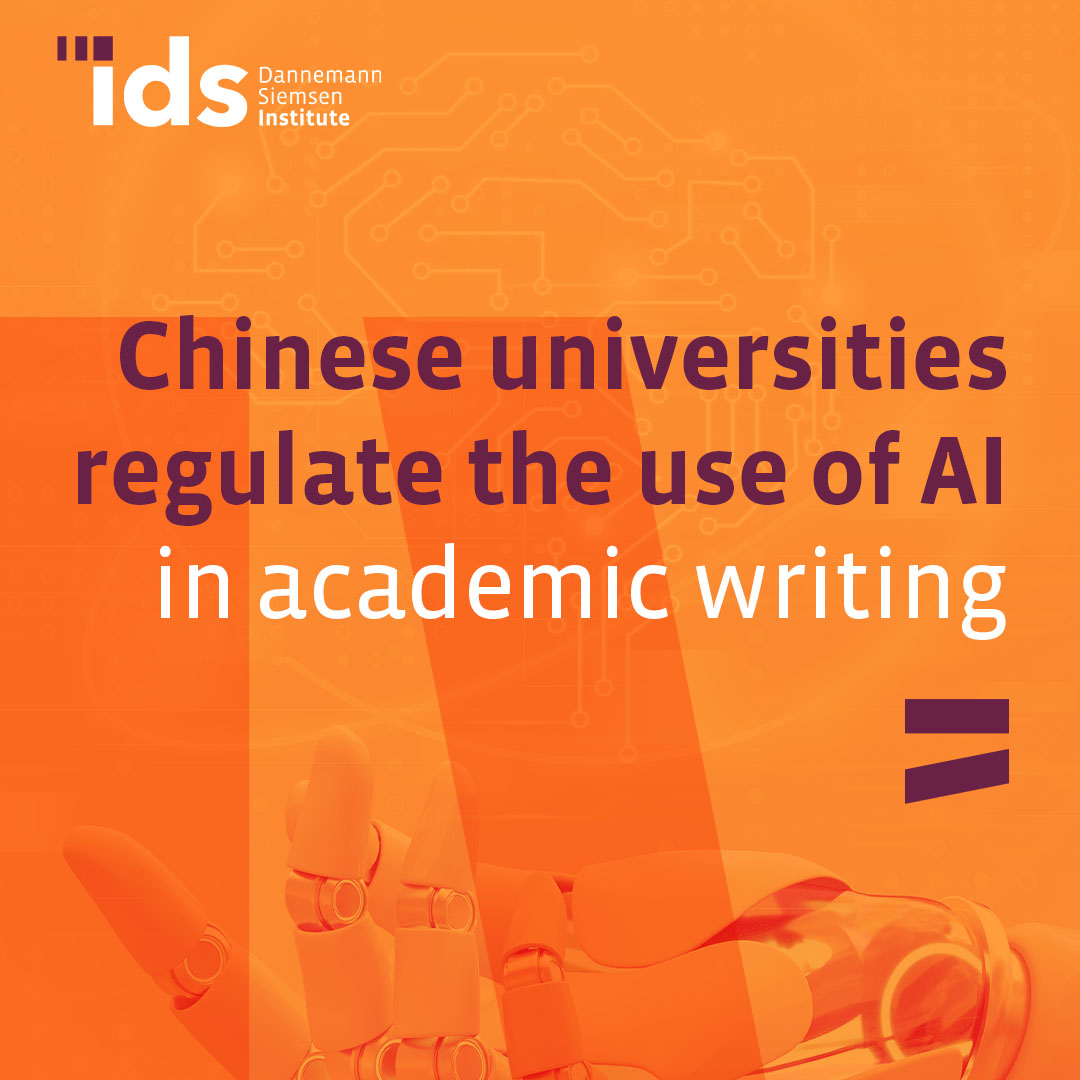22 de julho de 2024
Share
Chinese universities regulate the use of AI in academic writing
Several Chinese universities are regulating the use of generative artificial intelligence (AI) in the writing of academic theses, despite controversy over the integrity of the research and issues related to authorship. According to a report on the China Daily portal, institutions have been publishing guidelines with instructions on how students should use generative AI for academic writing, as well as the proportion of AI ghostwriting allowed.
According to a survey carried out in 2023 by China Youth Daily, more than 80% of students use AI tools for their work. Since 2013, the country has subjected individuals who commit plagiarism, data falsification and other types of academic misconduct to the cancellation of their diploma. In April 26, 2024, Chinese legislators voted to adopt the so-called “Academic Degrees Law”, which will come into force on January 1, 2025. Initially, the text of the law mentioned a ban on academic papers written with the assistance of an AI– assisted ghostwriting”, however, the version of the law as published excluded references to AI and only indicated a ban on theses written by ghostwriters.
To this end, some Chinese universities have issued guidelines on the use of technology in academic work. The institutions stipulate standards for use and set limits for the practice, as well as publicizing the methods that will be used to detect AI-generated content (AIGC) in the work. With this approach, the article signals that the belief is that the reasonable and creative use of AI can improve research projects and the writing of articles, while maintaining the principle that the overall argument of a thesis should be the result of the student’s independent research.
For example, the Communication University of China issued a notice on regulating the use of AI in undergraduate theses, followed by detailed regulations from several of its departments. For example, one of the University’s schools requires students to clearly disclose whether they have used generative AI, including details such as the name of the model, software or tool, the version and the time of use. In addition, they must specify the process of generating content related to facts and opinions and provide adequate citations in the thesis to ensure accuracy and respect for the IP rights of other authors.
Also, according to the article, for example, Fuzhou University, in Fujian province, informed students that it would test the preliminary and final versions of their end-of-course work using an external platform. The university said that the new rules aim to strengthen academic integrity, promote a ‘good academic ecosystem’ and standardize the scientific and reasonable use of AI technology. Similarly, the circular issued to students by the Tianjin University of Science and Technology laid down more specific rules, stating that if the proportion of AI-generated text in the academic thesis exceeds 40 per cent, the university will issue a warning to the student. ‘After receiving the warning, the student must make serious revisions before the university carries out another inspection through the relevant AIGC detection channels.’
The original news item can be accessed via the link: Universities regulate use of AI in writing
The Academic Degrees Law can be accessed here: https://www.chinalawtranslate.com/en/degrees-law/
Note: For quick release, this English version is provided by automated translation without human review
